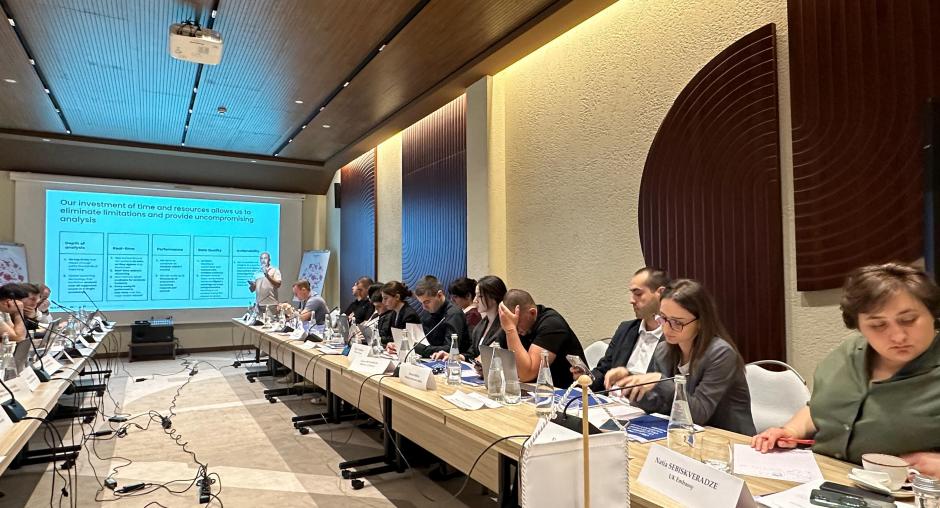Georgian law enforcement officials receive advanced training on crypto-assets investigations

Despite the numerous opportunities they present, cryptocurrencies and other virtual assets also come with a wide range of risks, including money laundering, terrorist financing, and fraud. To strengthen Georgia’s crypto-related crime investigations, the Office of the Co-ordinator of OSCE Economic and Environmental Activities (OCEEA), in partnership with the United Nations Office on Drugs and Crime (UNODC), gathered 30 law enforcement representatives in Tbilisi from 29 April to 1 May for a targeted training to foster their expertise in this area.
The training equipped participants with advanced techniques and practical skills, including sophisticated methods for tracing criminal transactions across different blockchains, case studies highlighting real-world scenarios, best practices from other law enforcement agencies, and an orientation with specialized analytics software as well as open-source tools.
“Ensuring Georgia's capability to tackle financial crime, especially involving virtual assets, stands as a key focus for our Office. We actively collaborate with all relevant stakeholders involved in combating financial crime, particularly money laundering, at the national level and we are pleased to see that there is great interest in this project,” said Maksym Mishalov Dragunov, Assistant Project Officer at OCEEA.
“This is the fourth training so far on investigation of virtual assets for Georgian authorities, and the OSCE will continue to support Georgia’s efforts to combat money laundering through virtual assets and cryptocurrencies,” he added.
The training is part of an OSCE extra-budgetary project on “Innovative policy solutions to mitigate money-laundering risks of virtual assets”, funded by Germany, Italy, Poland, Romania, the United Kingdom and the United States. The project supports OSCE participating States in building national capacities to mitigate criminal risks related to virtual assets and cryptocurrencies.
